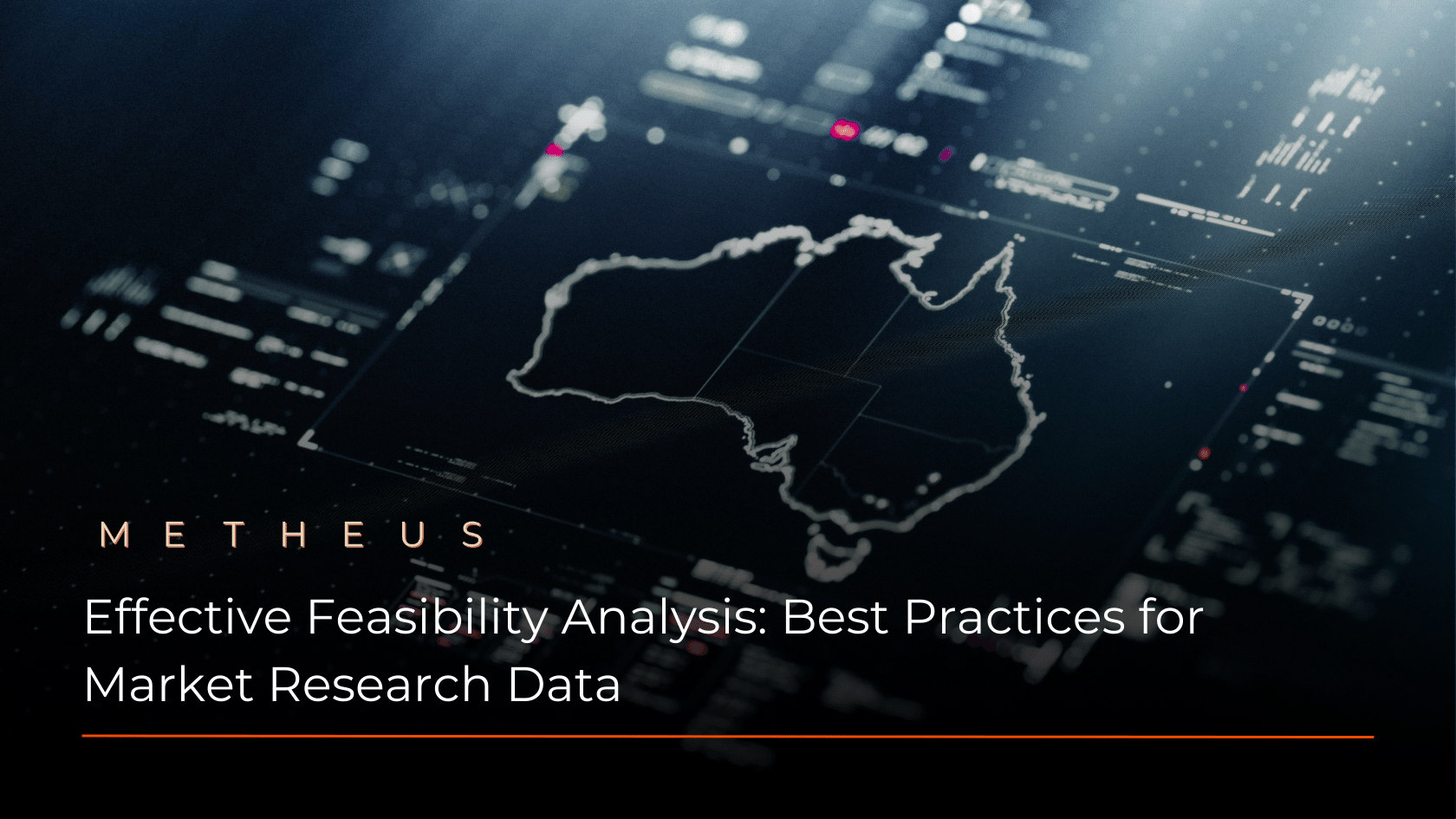Effective Feasibility Analysis: Best Practices for Market Research Data

Market feasibility analysis is the process of evaluating the potential success of a business or project within a specific market. Market research is an essential component of market feasibility analysis as it involves gathering and analysing data to better understand the market. Accurate market research data helps businesses make informed decisions and develop effective strategies. A report by ResearchAndMarkets found that the global market research and analysis services market size is expected to reach USD 94.4 billion by 2025, growing at a CAGR of 6.4% from 2020 to 2025 which shows the importance and the size of this industry. In this blog post, we'll explore the best practices for gathering market research data during market feasibility analysis.
Now let’s take a look at how we can gather this data and how we can use it for market feasibility analysis:

Preparing for Market Research
Before conducting any market research, it's essential to take the time to prepare and plan accordingly. This stage involves defining your research objectives and questions, choosing your target market and audience, and deciding on the type of research you want to conduct.
Defining research objectives and questions
Before conducting market research, it's essential to define your research objectives and questions. What do you want to achieve through your research? What questions do you need to answer? Without a clear understanding of your research goals, it can be challenging to design effective research methods and interpret the data collected.
Choosing your target market and audience
Once you have a clear understanding of your research objectives, the next step is to choose your target market and audience. Who are you researching, and what demographic do they fall into? It's essential to have a well-defined target market as this will help guide your research efforts and ensure that the data collected is relevant and meaningful.
Deciding on the type of research
Finally, it's crucial to decide on the type of research you want to conduct, whether it's qualitative, quantitative, or a mix of both. Qualitative research involves exploring subjective experiences and perceptions, while quantitative research focuses on numerical data and statistical analysis. Choosing the appropriate research methods can help ensure that you collect the necessary data and achieve your research objectives.
Online surveys are the most popular quantitative approach (89%), followed by mobile surveys (60%) and focus groups are the most popular way for qualitative research, per a Statista study with 1071 participants released in 2021. Traditional techniques aren't the only ones used in market research, though. Mobile-first surveys, text analytics, social media analytics, and big data analytics are chosen as the top rising methodologies in market research all over the world in the same study.
Collecting Market Research Data
Collecting market research data is a crucial step in the market feasibility analysis process. Once you have prepared for your market research by defining research objectives, questions, and target audience, you need to collect data to gain insights into your chosen market.
There are several research methods to choose from, including data markets, surveys, interviews, focus groups, observations, and landing page lead collections through ads. When selecting research methods, it's important to choose the appropriate ones that align with your research objectives and questions. There are two main types of data sources to consider: quantitative and qualitative.
Quantitative data sources include data markets such as Statista or country statistical institutions that provide published data on industries, benchmarks, and countries. These sources can be particularly helpful for gaining a broad understanding of a market and its trends. For instance, according to a Statista report, Brazil will rank first among 20 countries worldwide in retail e-commerce development between 2023 and 2027, with a compound annual growth rate of 14.6 percent.
Qualitative data sources, on the other hand, include methods such as interviews and focus groups, which allow for more in-depth exploration of specific topics. These methods can provide valuable insights into consumer behavior, preferences, and opinions. Focus groups and qualitative interviews are another popular research method. In fact, according to a survey by the Pew Research Center, 90% of American adults have participated in some form of market research.
Regardless of the research method you choose, it's crucial to ensure data quality by using reliable sources and avoiding bias. Thomas Redman, also known as “the Data Doc”, says that “Where there is data smoke, there is business fire.” which sums up what a biased or wrong data can lead a company to.
Lastly, consider the period and amount of data collection as well. Too little data may not provide enough information, while too much data can be overwhelming and time-consuming to analyse. It's important to strike a balance between collecting enough data to make informed decisions and not collecting so much that it becomes difficult to analyse.

Analysing Market Research Data
Once you've collected your market research data, the next crucial step is to analyse it effectively. You need to organise and structure the data in a way that makes sense to you and others involved in the research. This means labelling and grouping data by topic, subtopic, or any other relevant criteria.
Using appropriate data analysis tools and techniques can help you identify patterns, trends, and insights in your data. You can use statistical analysis tools to find correlations, compare different groups, and identify the most significant factors affecting your research.
Interpreting the data is the last step in the analysis process. You need to make sense of the findings and draw relevant conclusions that can help you make informed decisions. Based on the insights gained, you can determine whether your initial assumptions were correct or if you need to adjust your strategy. By interpreting the data, you can identify potential opportunities or challenges, and use this information to plan your marketing strategies accordingly.
For instance, if your market research showed that your target audience is most active on social media platforms, you can create a social media marketing campaign that targets this audience. On the other hand, if your research showed that your audience prefers email communication, you can focus on email marketing campaigns to reach them.
Applying Market Research Data

After interpreting and drawing conclusions from the data, the next step is to translate those insights into actionable recommendations. This involves identifying key takeaways from the data analysis and using them to inform the development of a market feasibility analysis.
The market feasibility analysis should be based on the research findings and should aim to assess the viability of a business or project in the market. It should take into consideration factors such as market size, growth potential, competition, and target audience.
Once the market feasibility analysis is completed, it's time to develop a strategy. The strategy should be clear and concise, outlining specific tactics and objectives based on the findings of the analysis.
After the strategy is developed, it's important to implement it and monitor its effectiveness. This may involve making changes to existing initiatives or creating entirely new ones. It's important to continuously evaluate and refine marketing efforts based on research data to ensure ongoing success and growth.
Market research data at market feasibility analysis
In conclusion, market research is an essential component of market feasibility analysis. By following best practices for gathering market research data, businesses can make informed decisions and develop effective strategies. Remember to define your research objectives and questions, choose the appropriate research method(s), design effective questionnaires and protocols, analyse data properly, and apply research data to make actionable recommendations. In order to conduct effective market research for your business or project, we are here to help! As Metheus Consultancy, we used our expertise with more than 30 countries to conduct market search in order to do successful market feasibility analysis. Contact us today to learn more about how we can help you with market feasibility analysis and market research!
